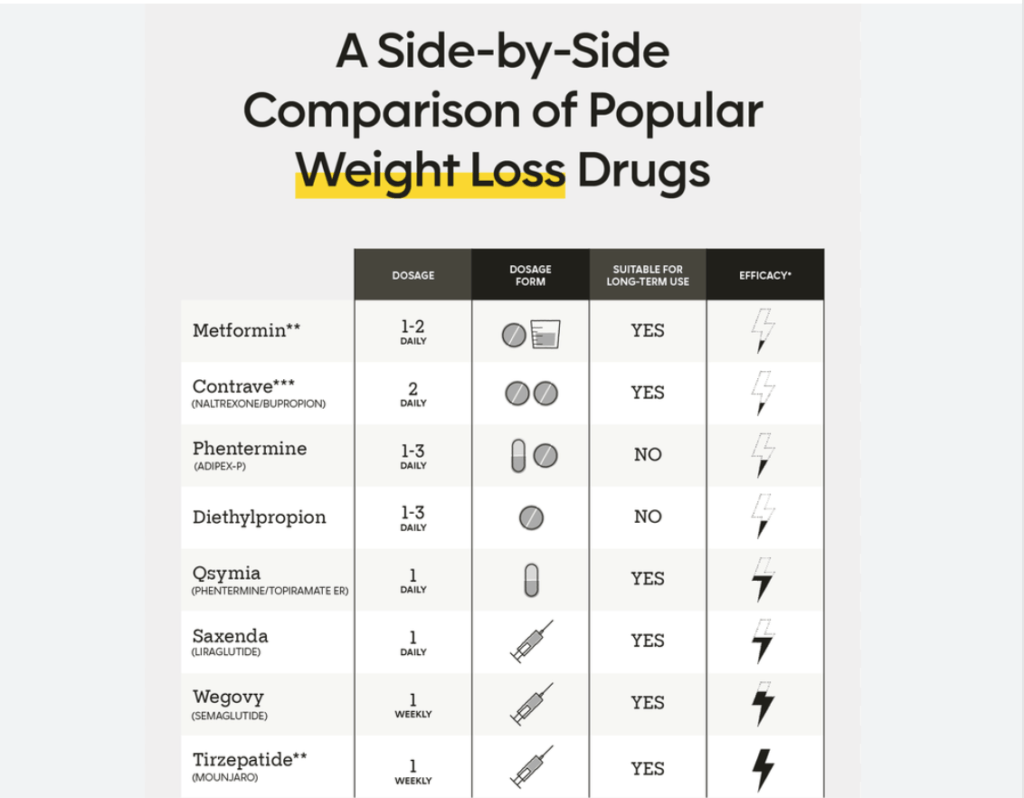Introduction:
As the New Year unfolds, many of us find ourselves reflecting on the past and setting resolutions for the future. Among the most common goals is the desire to shed those extra pounds and embark on a journey to a healthier, happier self. January is the perfect time to kickstart your weight loss journey, and in this blog post, we’ll explore why, along with practical advice, dietary changes, and the introduction of newer weight loss methods, such as medical weight loss and GLP-1, offering hope for those with morbid obesity.
Why January?
- Fresh Start Mentality: January symbolizes a fresh start, a blank canvas waiting to be painted with positive changes. Harness this energy to set realistic weight loss goals and build a solid foundation for a healthier lifestyle.
- New Year Resolutions: The tradition of making resolutions aligns with the motivation to make positive changes. Harness the collective energy of people striving for self-improvement and use it as a support system.
How to Start Weight Loss Journey:
- Set Realistic Goals: Start with achievable, small goals. Whether it’s incorporating more fruits and vegetables into your diet or committing to regular physical activity, setting achievable goals will help you build momentum.
- Mindful Eating: Practice mindful eating by paying attention to your body’s hunger and fullness cues. Avoid distractions like phones or TVs during meals and savor each bite.
- Balanced Diet: Focus on a balanced diet that includes a variety of nutrients. Incorporate lean proteins, whole grains, fruits, and vegetables while limiting processed foods and added sugars.
- Hydration: Drink plenty of water throughout the day. Sometimes, our bodies can confuse thirst with hunger, leading to unnecessary snacking.
- Regular Exercise: Find an exercise routine that you enjoy, whether it’s walking, jogging, cycling, or dancing. Consistency is key, so aim for at least 150 minutes of moderate-intensity exercise per week.
Newer Methods of Weight Loss:

xr:d:DAFgnSUbTYM:3,j:3068436794,t:23042005
- Medical Weight Loss: Medical weight loss programs, supervised by healthcare professionals, provide personalized plans that may include prescription medications, dietary counseling, and lifestyle changes. These programs offer a comprehensive approach to weight management.
- GLP-1: GLP-1 receptor agonists are a class of medications that help regulate appetite and promote weight loss. They are proving to be a valuable option, especially for individuals with morbid obesity, providing hope for sustainable weight loss with medical support.
The Role of GLP-1 in Weight Loss:
GLP-1, or Glucagon-Like Peptide-1, is a naturally occurring hormone in the body that plays a crucial role in regulating blood sugar levels and satiety. In recent years, GLP-1 receptor agonists have emerged as a promising tool in the realm of weight loss, offering a novel approach for individuals struggling with obesity.
Mechanism of Action:
GLP-1 receptor agonists work by mimicking the effects of the GLP-1 hormone. When administered, they stimulate the GLP-1 receptors in the brain, specifically the hypothalamus, which is responsible for controlling appetite and energy balance. This stimulation leads to increased feelings of fullness and reduced appetite, ultimately aiding in weight loss.
Effectiveness:
Studies have demonstrated the effectiveness of GLP-1 receptor agonists in promoting weight loss. These medications have been shown to significantly reduce body weight by targeting not only the hormonal aspects of appetite but also by influencing the way the body handles energy and stores fat. As a result, individuals using GLP-1 receptor agonists often experience substantial weight loss when combined with a healthy diet and exercise.
Superiority Over Other Weight Loss Methods:

GLP-1 receptor agonists have shown superiority over some traditional weight loss methods for several reasons:
- Appetite Suppression: Unlike many weight loss medications that focus on reducing fat absorption or increasing metabolism, GLP-1 receptor agonists primarily target appetite. This makes them particularly effective in addressing the root cause of overeating and obesity.
- Metabolic Benefits: In addition to weight loss, GLP-1 receptor agonists offer metabolic benefits. They can improve insulin sensitivity and control blood sugar levels, making them beneficial for individuals with obesity-related metabolic conditions like type 2 diabetes.
- Sustainability: The weight loss achieved with GLP-1 receptor agonists appears to be sustainable over the long term. This is a significant advantage compared to some other weight loss methods that may result in weight regain once the intervention is discontinued.
Future Prospects:
The future of GLP-1 in weight loss holds promise for further advancements. Ongoing research is exploring new formulations, delivery methods, and combination therapies to enhance the efficacy and tolerability of GLP-1 receptor agonists. Additionally, as our understanding of the complex mechanisms behind obesity deepens, there is potential for the development of even more targeted and personalized approaches to weight management.
Conclusion:
Embarking on a weight loss journey in January is more than a cliché; it’s an opportunity to harness the collective motivation for self-improvement. By adopting practical lifestyle changes, dietary adjustments, and exploring newer methods like medical weight loss and GLP-1, you can set yourself on a path to a healthier, happier you. Remember, the key is consistency, patience, and a commitment to long-term well-being. This year, make January the month you take the first step towards achieving your weight loss goals and embracing a healthier lifestyle.




















